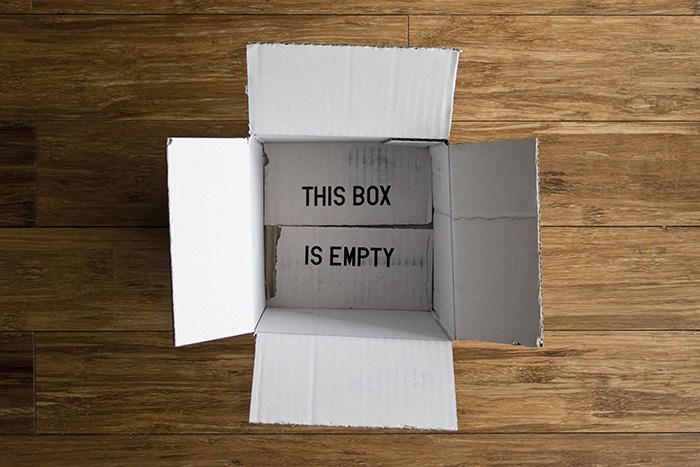Apocalypse Training 101: Learn How to Survive the End of the World
When non-preppers think about how to survive the end of the world, they usually think about hoarding supplies, finding a secure place to store them and hunkering down to wait it out. It’s a nice fairy-tale, but in the real world, when SHTF, true survivors have to know how to hit back.
While it is important to stock up on supplies that you might need to survive TEOTWAWKI, having all the supplies in the world won’t help you if you can’t get to them when an apocalypse event strikes. What about defending all your supplies from desperate people trying to get them? What about protecting yourself and the people you care about? What if a flood or fire break out and you end up stranded with nothing? Even if you do manage to make it back to your supplies and feel safe, what happens when the inevitable occurs and your supplies run out?
Fitness is the First Step to Survival
The truth is, prepping is about skill and knowledge, first and foremost. Knowing what matters most is the true key to apocalypse survival, and having the skills to do whatever it takes to keep going isn’t about buying stuff; it’s about building your skill-set. That’s why the first step in learning how to prepare for the end of the world is always getting your body ready to handle whatever might come your way. In reality, every moment is an opportunity to train for the end of the world.
The Elements of Physical Fitness
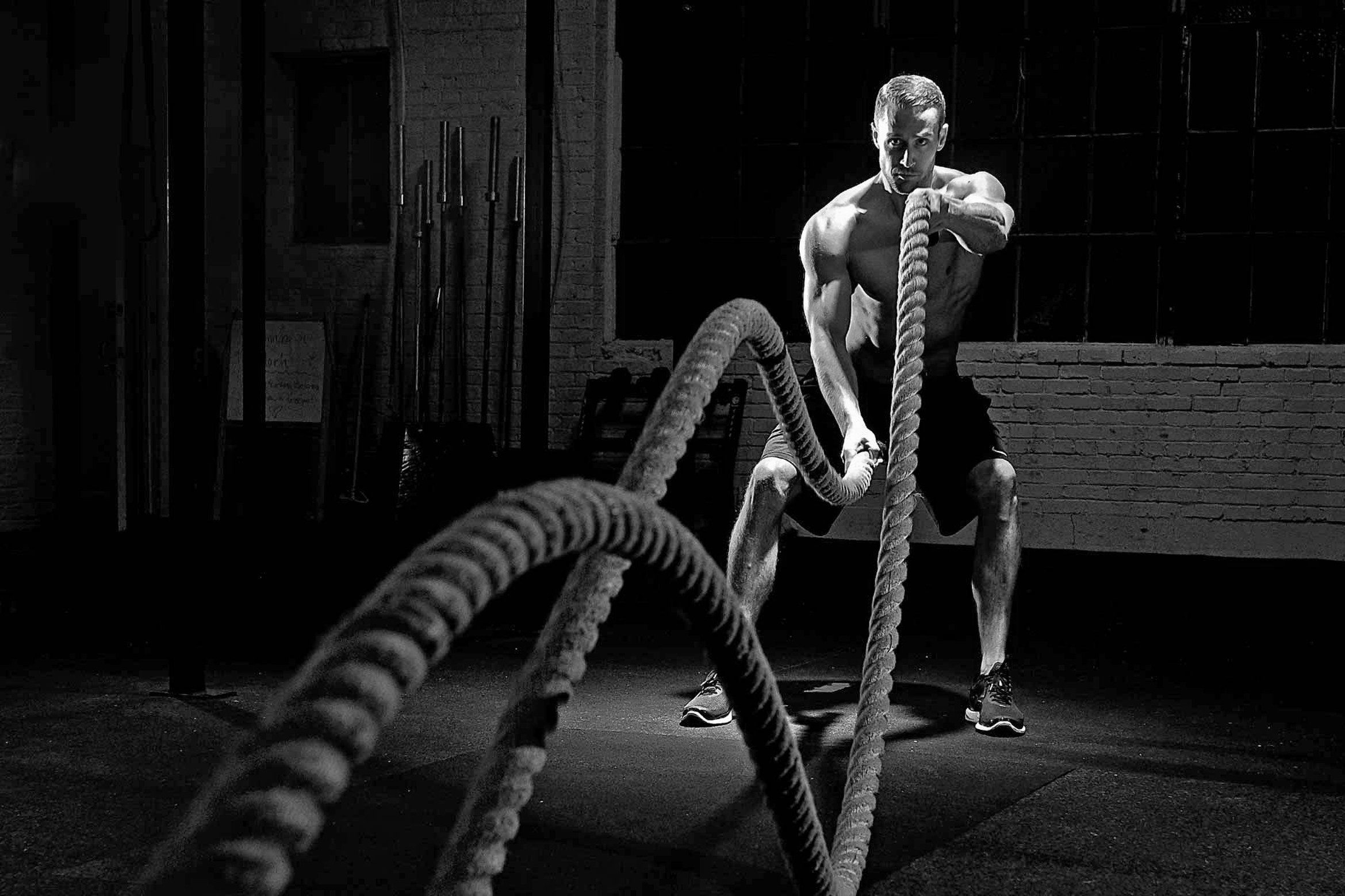
Diversify your training to see the greatest results.
Endurance. Strength. Flexibility. Creativity. These are the essential elements of apocalypse survival and training. The good news is that there are plenty of opportunities in your everyday life to increase your overall capacity to execute these skills – if you make the time for it. Here’s a quick guide on how to physically prepare for SHTF:
- Endurance. There’s just no way to build your stamina without getting after it, every day. Endurance is quite literally a marathon sport. Even if it starts with a simple walk, find a way to get moving and keep moving every day. Aim to continually increase the amount of physical activity you do, the kinds of activities you try and their level of difficulty.
- Strength. Bodyweight exercises are a great way to strengthen and tone without a ton of equipment, while there are a range of targeted activities like CrossFit and Krav Maga that can help you home in on and improve your weakest skills.
- Flexibility. It may not seem very tough, but staying limber is essential to staying alive. Stretch while you strengthen, and you’ll be able to do more and recover faster after intense physical activity.
- Creativity. Diversify your training to see the greatest results. Try different combat methods and improvise with the environment around you to identify your strengths and weaknesses while making it easier to respond effectively, whatever your situation or surroundings.
Apocalypse Training Techniques
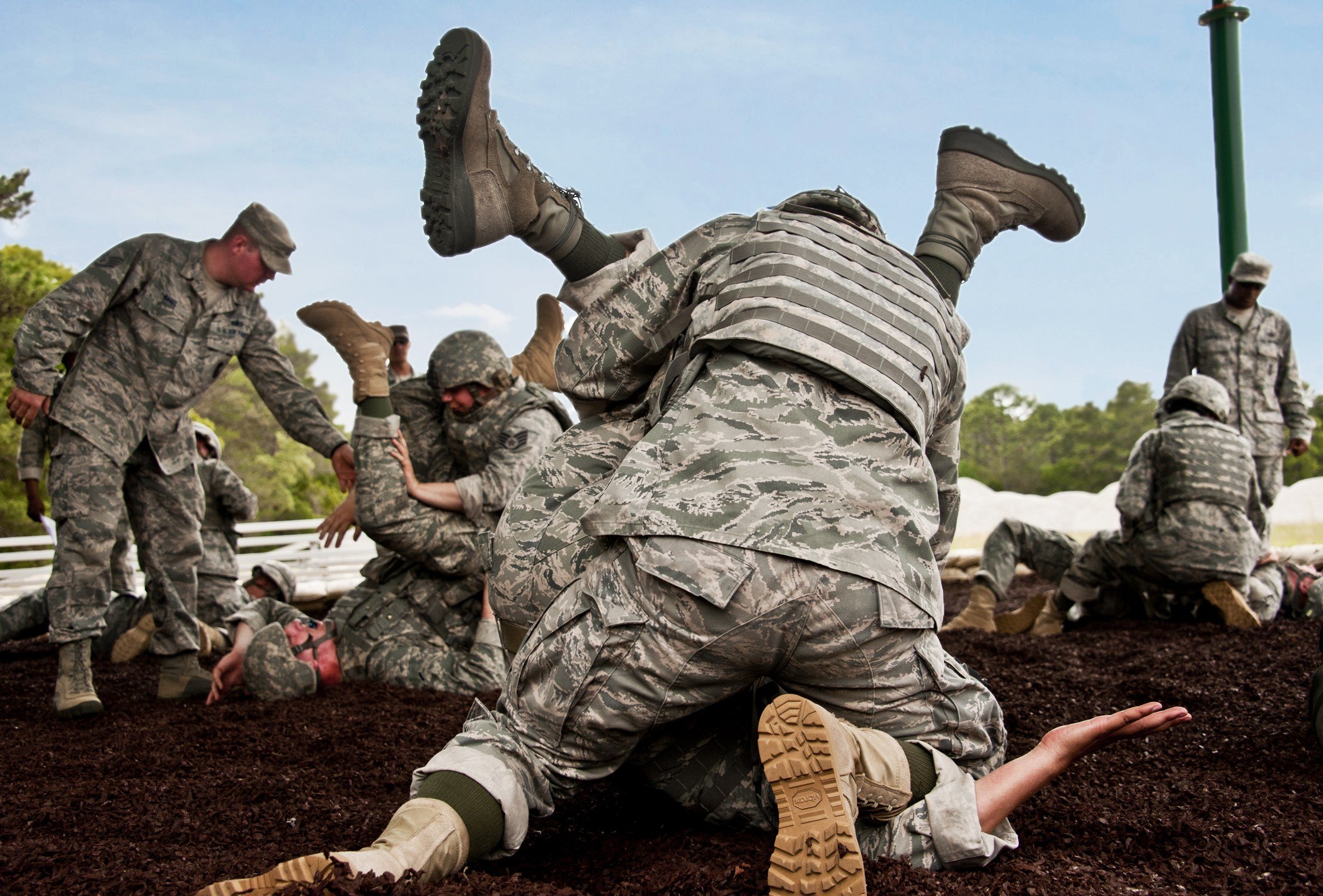
Learn how to defend yourself in a lethal situation without a weapon.
Ultimately, fitness training for SHTF situations is about applied knowledge, not book learning or simulations. The people you’re fighting against when SHTF won’t follow the rules of sparing or good sportsmanship. At TEOTWAWKI, you’ll be fighting for your life with whatever you have available. That means you need to be prepared to fight on all fronts.
Train in three ways for maximum effect:
- Functional Training. Use what’s around you to build practical strength, like tires, ropes and more. This idea is the cornerstone of CrossFit and parkour training.
- Combat Training. Learn how to defend yourself in a lethal situation without a weapon. Mastering a martial art that’s specifically designed for tactical fighting like Krav Maga can be your greatest protection in an apocalypse situation.
- Tactical Training. Firearm training is a no-brainer. Having a gun won’t help you if you don’t know how to properly use it or don’t consistently practice and improve your shooting skills.
When deciding how to build your skills in each of these three areas, think about the ultimate goal of any technique you learn. Your primary objective is to survive, not simply one-up your assailant. Find tactics that will help you stay one step ahead of an opponent both mentally and physically. Approaching your training this way is how to survive the end of the world. Survival isn’t about winning a trophy or a championship belt. It’s about making it out alive.
Tactical Survival Training for TEOTWAWKI
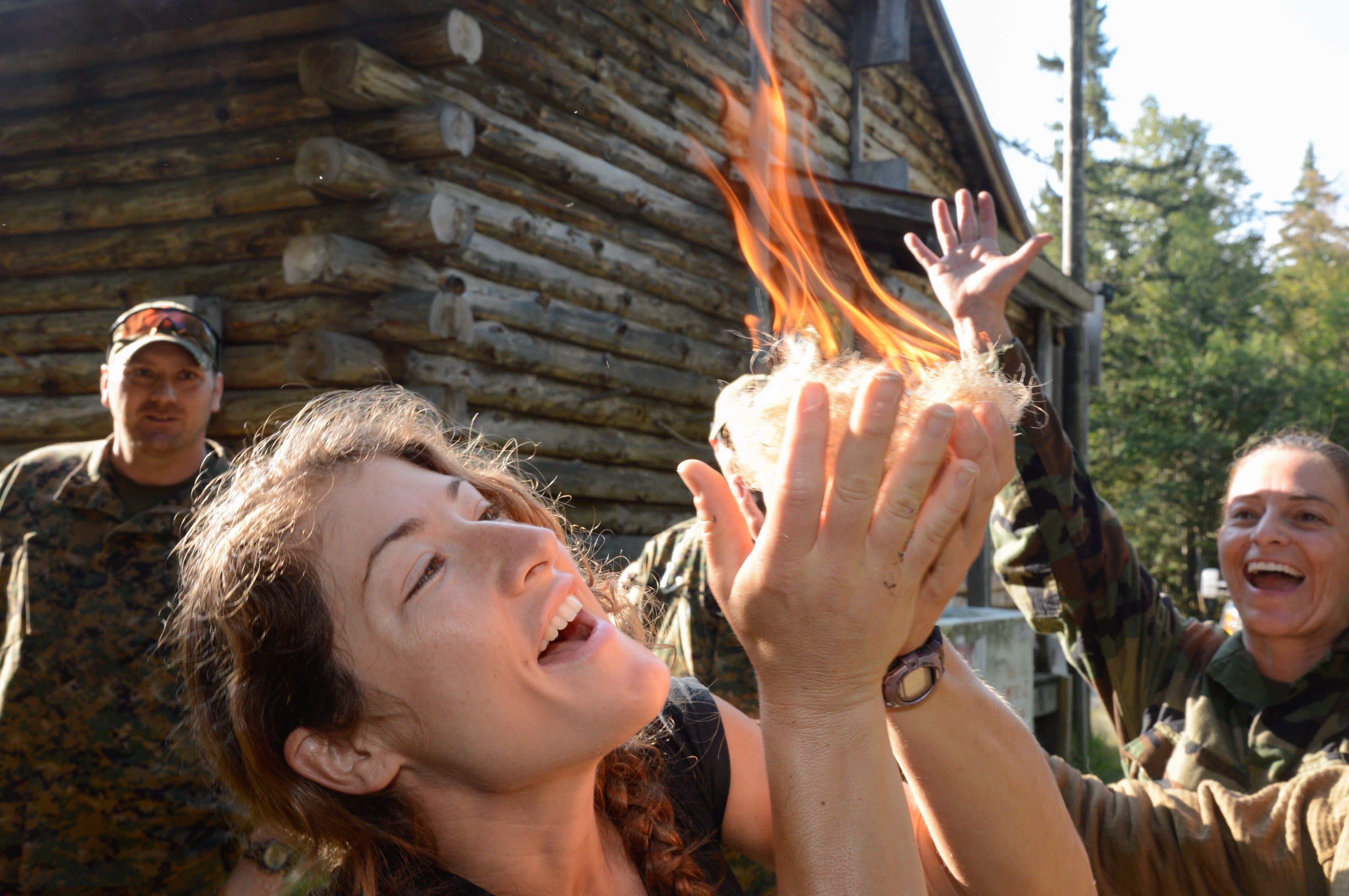
Focus on developing the kind of skills that will serve you under pressure when preparing for the end of the world. PHOTOGRAPHER: Lauren Harnett
If you really think about it, it makes sense to focus on developing the kind of skills that will serve you under pressure when preparing for the end of the world. You won’t be facing rainbows and words of encouragement in the end of days. When training with firearms, spend the majority of your time building and practicing fundamental skills so they become natural reflexes when you’re fighting for your life, rather than focusing on tricks and complicated techniques that will take time to recall.
The tactics you have to think about are the ones that will do the most damage when it’s time to make a split-second decision in a fight or flight situation. It’s better to stick with tactical techniques that complement what naturally happens in your body and brain when adrenaline spikes. This means sticking with methods that retain your accuracy and control, even when you’re under serious stress.
Practice the Basics. Then Practice Differently.
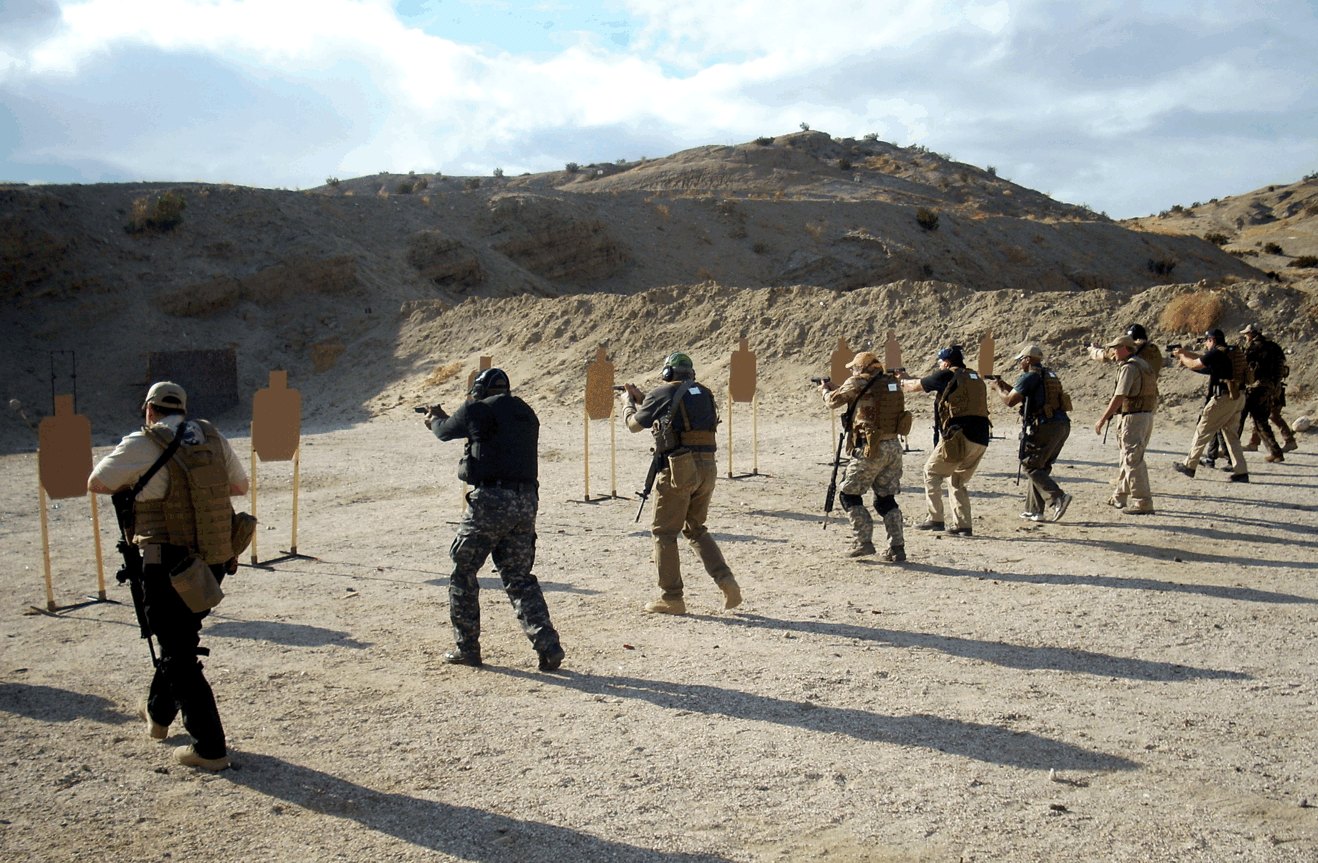
The tactics you have to think about are the ones that will do the most damage when it’s time to make a split-second decision in a fight or flight situation.
The first key to effective firearm use is mastering the basics, including your stance, grip, target acquisition, sights, trigger control, follow-through and ability to disarm an opponent. Here’s a quick breakdown of each and what you should focus on to improve your fundamentals.
- Power Stance. Improving your overall fitness level will help you find a stable, mobile and balanced stance when shooting your gun, but it takes practice to find the power stance that will protect you from recoil, while letting you stay agile, aggressive and in control.
- Grip. Make your grip firm, tight and with your thumbs curled down. Firearm expert and master trainer Massad Ayoob calls this the “crush grip,” and it’s one of the five elements he considers most crucial to have in your arsenal before firing a gun (Ayoob, 2012).
- Target Acquisition. This skill covers the rapid vision transition that must occur after you’ve spotted a target and before you shoot. Practice adjusting the focus of your eyesight from a natural target to your sights quickly so you program the movement into your eyes’ muscle memory.
- Sight Alignment and Picture. Two essential yet separate elements of proper shooting, sight alignment requires that your front sight be centered between the rear sights with your rear sights horizontally aligned, while sight picture is the relationship of your sight alignment to your target for accurate execution. Understanding the relationship between sight alignment and picture takes practice and depends on your individual gun.
- Trigger Control. Your grip will go a long way toward improving trigger control, which is the act of pulling the trigger without pushing the nose of the gun up or down, jerking the trigger or otherwise disturbing your aim. Smooth and consistent squeezing is key.
- Follow-Through and Reset. Follow-through is about squeezing the trigger until it stops moving, while reset is about getting the trigger ready to fire again. After your follow-through, practice releasing the trigger to the point of reset and firing again. Sometimes, the trigger break and follow-through positions are the same, sometimes not. Your trigger reset is rarely the same position where the trigger rests when untouched. Practice to determine both the follow-through and reset positions of your specific guns.
- Disarmament. Whether you’re facing a knife, gun or concealed weapon that you can’t identify, you have to know how to disarm an assailant coming at you with a weapon – not only to protect yourself from other people, but also to anticipate how someone else might try to disarm you and prevent it.
There are a few simple drills that can help you get the basics ingrained in your brain, round out your shooting skills, and give you the confidence and versatility you need to shoot well when SHTF. Remember to practice shooting both moving and still targets, work with both two-handed and one-handed grips, and incorporate movement into your tactical training. If you aren’t shooting, move.
You should test out different kinds of firearms, including rifles, shotguns and handguns, and practice drawing and shooting them all until you find the weapons that work best for you. Your gun will do you no good if you can’t draw it fast enough and shoot it accurately. Practice in low light environments, try shooting multiple targets to improve your agility, and practice safely shooting from behind cover and concealment. All of these techniques can give you a huge tactical advantage in a lethal confrontation.
Mental Readiness: The Real Key to Apocalypse Survival
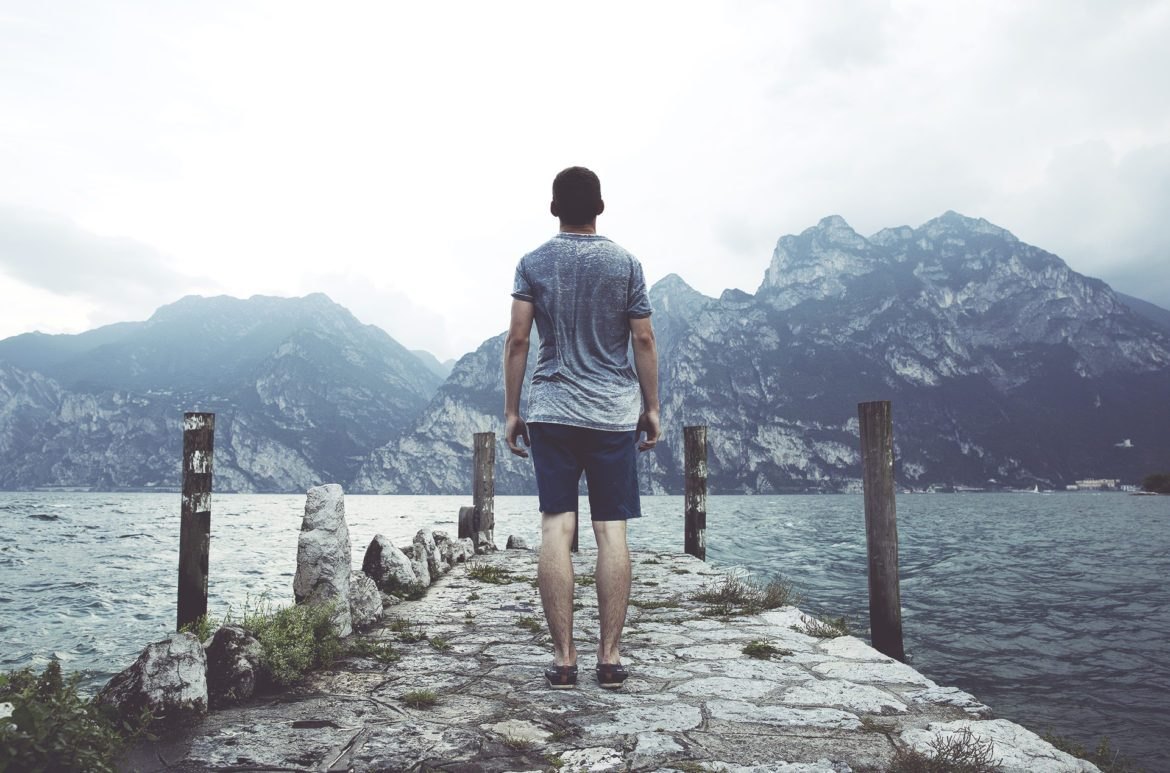
Mental preparation is about conditioning yourself to handle the inevitable emotions during an apocalypse. Fear, concern, hopelessness, helplessness, defeat. Being better prepared than most can itself be a liability, since you can’t save everyone and trying to could ultimately end your own life. How will you determine when to stand firm, when to offer help and when to move on?
Mental preparedness doesn’t mean being weak. In fact, working on assessing, identifying and controlling your emotions will improve your ability to stay assertive, aggressive and in control instead of breaking down in the face of disaster. Often, appearing aggressive is enough to keep weaker would-be threats at bay, without the risks of direct engagement.
Having a strong mind and body and the right functional, combat and tactical training will go a long way to getting your ready for TEOTWAWKI – much more than stockpiling supplies can ever do. I hope this article gave you a good understanding of where to put your focus to really prepare for SHTF. If you get after it and train to improve a little each day, you’ll be better prepared than most when the end of the world arrives. Good luck.
When non-preppers think about how to survive the end of the world, they usually think about hoarding supplies, finding a secure place to store them and hunkering down to wait


